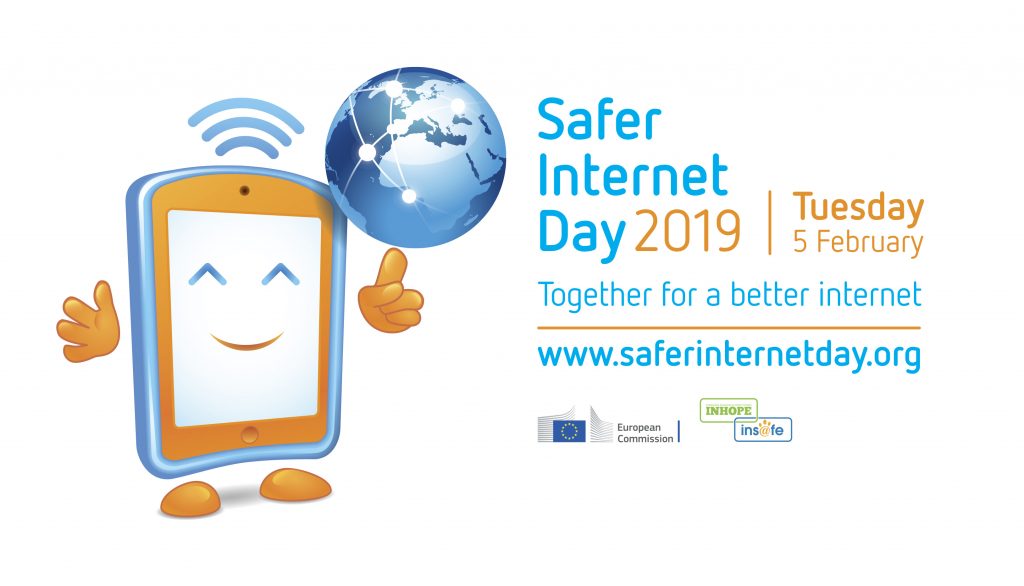

Safer Internet is celebrated every year today the 5th of February to sensitise parents, politicians, educationists, businessmen and experts in technology sector about how to have a safer internet for our societies and communities, and in particular for the younger generations.
This initiative which started in European countries by Safe-Borders project in 2004 has become global. This year, over 140 countries are taking part with the Slogan “Together for a better Internet”. The initiative is driving government to introduce policies that enable us to have affordable internet access for everyone while maintaining our social-cultural integrity.
It is important to note that nowadays internet access is a necessity for our lives from education to medical, business, communication, or/and entertainment. However, it poses real treat to us particularly on the youth. Hence, most parents around the globe are now worried not only about what their children are exposed to but also about the dangers they might face.
Somaliland is among African countries with fairly affordable internet access and today most of the households in big cities have internet connectivity in their homes or other mobile devices such as smartphones, smart-watches, et cetera. This is why some children have access to more than one device to go online.
Some of the major online threats include online scams, cyberbullying, inappropriate contents, chat-addiction and many more. The two most common threats in Somaliland is the inappropriate contents and social media addiction.
Most children spend their precious time on social media, so it’s necessary to ensure that they use those online platforms for good reasons and access good content. And the best way to do this is for parents to censor, guide and monitor their young children with regards to creation and use of social media accounts. In addition, parents should give them adequate orientation and mentorship when creating their own social media profiles.
More so, it is important to note that most adults are frequently targeted by fraudsters around the globe with online scams, ransomwares, and impersonation, among others. So to curb this, education and awareness programs would give these adult internet users to understand when to and when not to give information online. Anyone can fall victim – sometimes being educated or even being a cyber-security expert might not save you from being doomed, as we have some practical cases on social media scams where even IT professionals have become victims of impersonation.
In conclusion, even though service providers in Somaliland have been trying their best to safeguard our internet access by introducing expensive filtering systems and firewalling, there is still a need for stakeholders including political and religious leaders as well as the telecom sector to come together and discuss about some serious reoccurring challenges. Further collaboration and intensive awareness campaign among these stakeholders are very important.
Author: Eng S.Gulied, is a Technology Expert, who lives in Hargeisa, Capital of Somaliland.
more recommended stories
 President Irro’s Landmark Visit to UAE: A Diplomatic and Economic Win for Somaliland. Dubai, UAE – Somaliland’s Diplomatic Breakthrough
President Irro’s Landmark Visit to UAE: A Diplomatic and Economic Win for Somaliland. Dubai, UAE – Somaliland’s Diplomatic BreakthroughBy: Abdi Jama President Dr. Abdirahman.
 Kenya’s Unjustifiable Interference in Sudan: A Grave Violation of International Law and Regional Stability
Kenya’s Unjustifiable Interference in Sudan: A Grave Violation of International Law and Regional StabilityBy: Abdi Jama Kenya’s continued meddling.
 𝗙𝗼𝗿𝗺𝗲𝗿 𝗣𝗿𝗲𝘀𝗶𝗱𝗲𝗻𝘁 𝗠𝘂𝘀𝗲 𝗕𝗶𝗵𝗶’𝘀 𝗥𝗲𝗰𝗸𝗹𝗲𝘀𝘀 𝗔𝗰𝘁𝗶𝗼𝗻𝘀 𝗠𝘂𝘀𝘁 𝗡𝗼𝘁 𝗕𝗲 𝗜𝗴𝗻𝗼𝗿𝗲𝗱 – Abdihalim Musa
𝗙𝗼𝗿𝗺𝗲𝗿 𝗣𝗿𝗲𝘀𝗶𝗱𝗲𝗻𝘁 𝗠𝘂𝘀𝗲 𝗕𝗶𝗵𝗶’𝘀 𝗥𝗲𝗰𝗸𝗹𝗲𝘀𝘀 𝗔𝗰𝘁𝗶𝗼𝗻𝘀 𝗠𝘂𝘀𝘁 𝗡𝗼𝘁 𝗕𝗲 𝗜𝗴𝗻𝗼𝗿𝗲𝗱 – Abdihalim MusaYesterday, Somaliland witnessed a deeply troubling.
 ADFD pledges to support Somaliland, after President Irro visit
ADFD pledges to support Somaliland, after President Irro visitThe President of Somaliland, His Excellency.


Leave a Comment